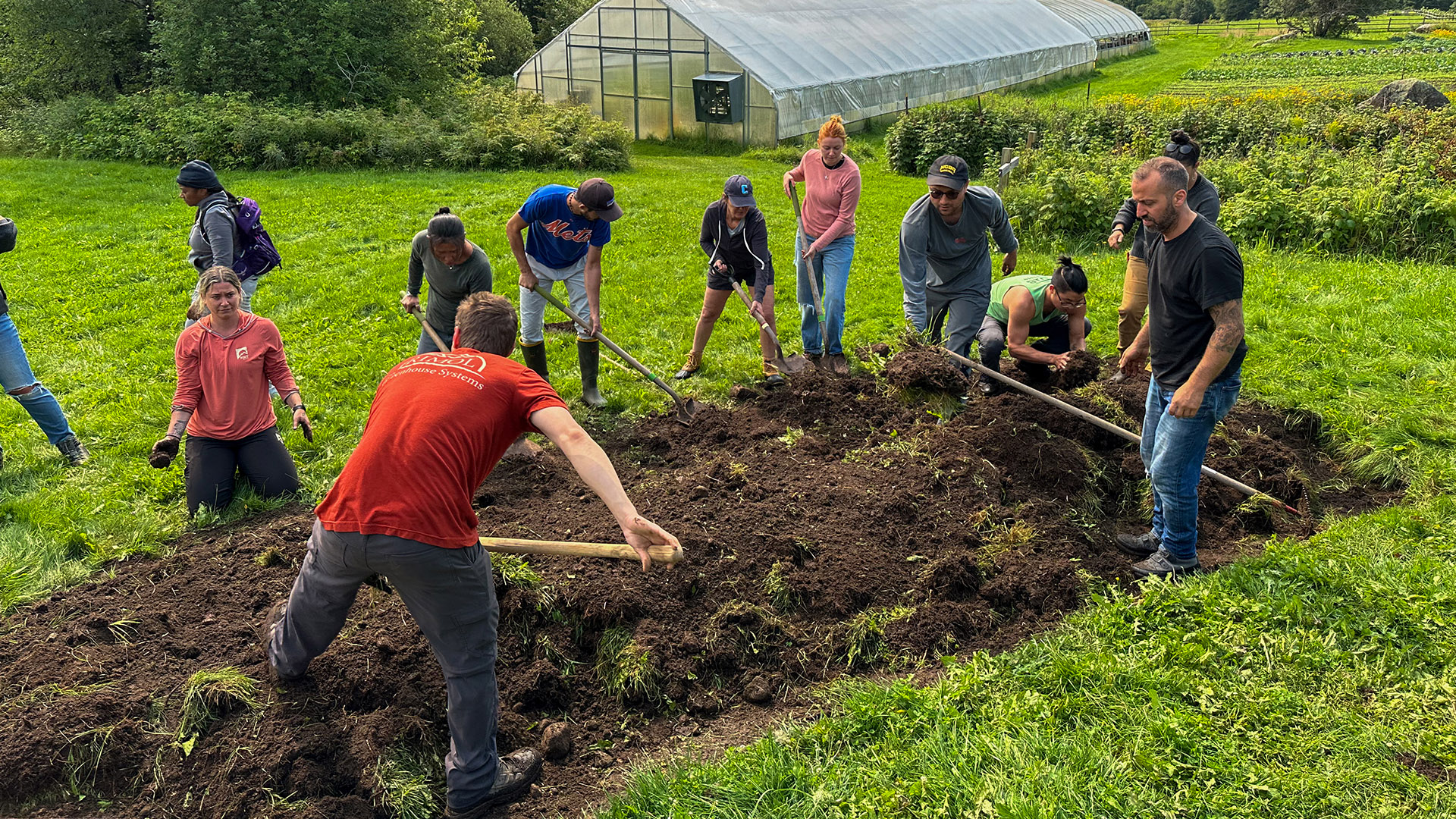
Learning the concepts of sustainability, food safety, and environmental stewardship in the classroom is one thing. Traveling to the Adirondack Mountains, staying six days and five nights on a farm, digging, literally, into the earth to harvest food to eat later that day—all while in conversation about the needs of the land, the people who live on it, and the push and pull between them—is quite another.
With the Adirondacks as its backdrop, “Riverdale in the North Country: A Farm to Table and Stewardship Retreat” saw 17 Riverdale educators harvesting garden-fresh fruits and vegetables for our meals while engaged in expansive learning about sustainable farming, land stewardship, and community collaboration. We worked in teams to clean the barn, milk goats, lead horses, and very importantly, reflect on those experiences afterward. We ritualized almost every moment of each day. Farm teams left at 6:30 am for their chores, leaving behind the breakfast crew because feeding 17 people three meals a day is no simple task.
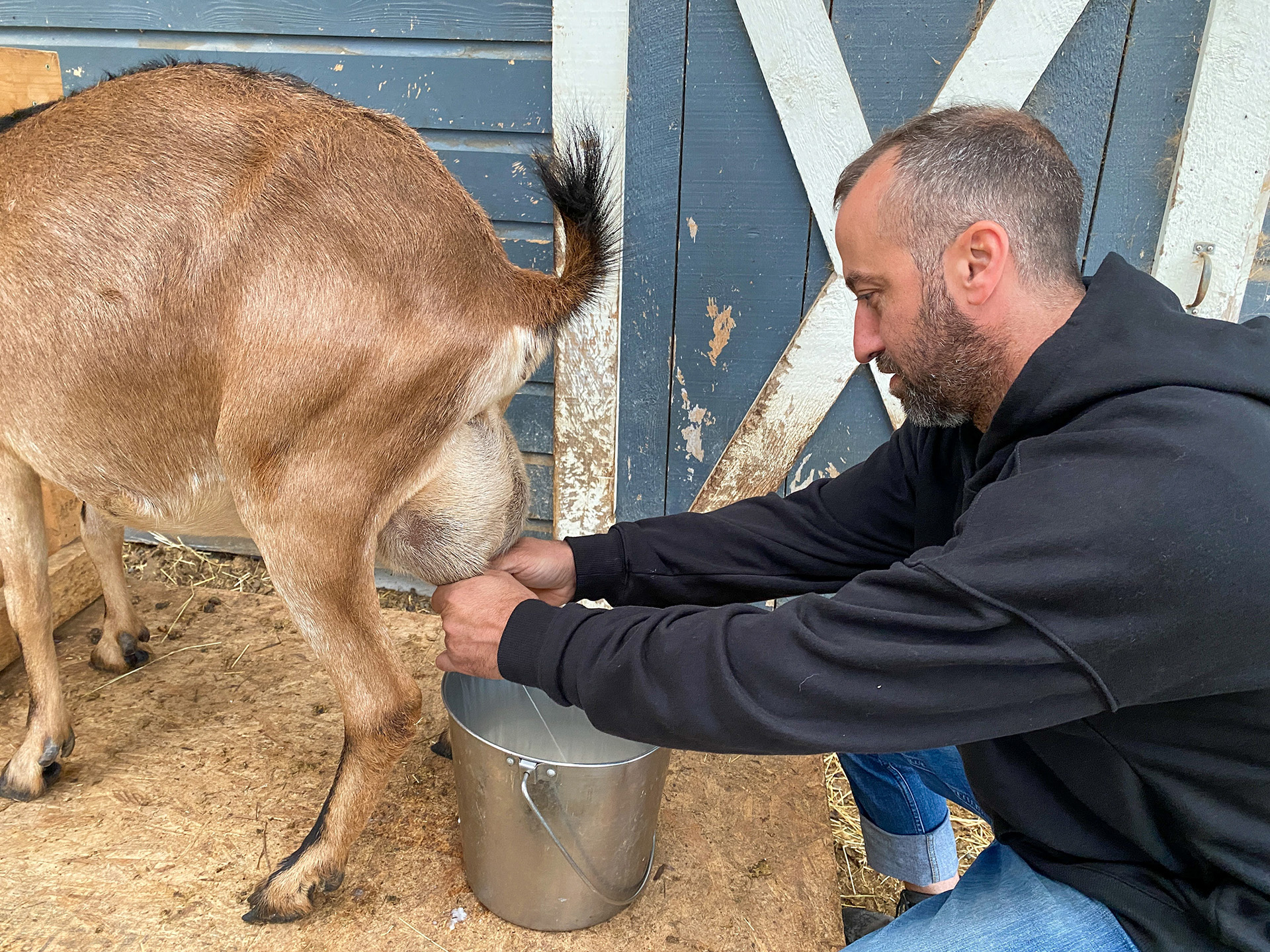
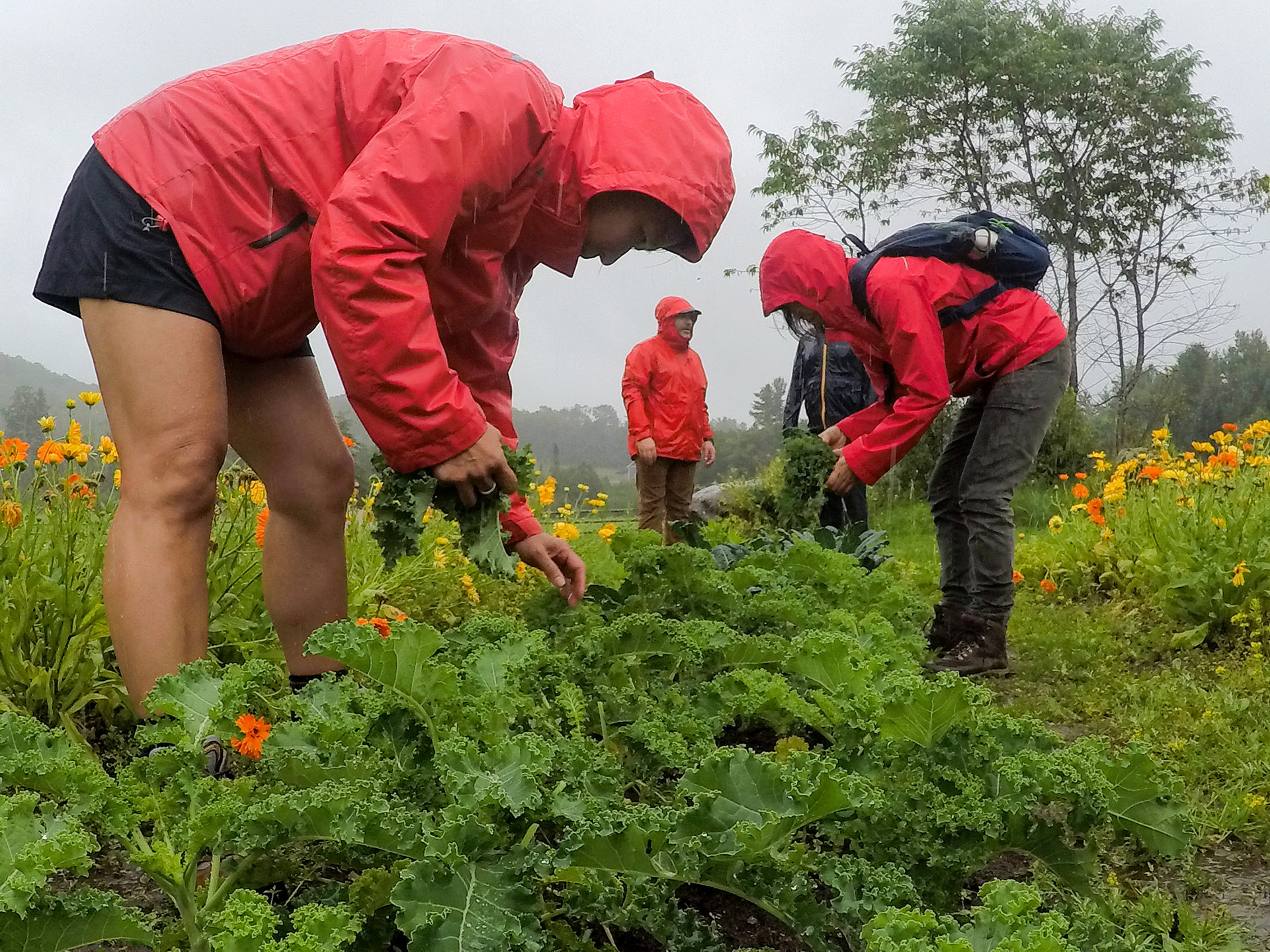
While officially this retreat was for professional development, the reality is that it also provided personal development. Each of us had to think deeply about our place in our lives, our affect on the world around us, and how we choose to interact with food systems. The group was made up of faculty and staff from all three Riverdale divisions (Lower School, Middle School, Upper School), which allowed for endless opportunities to bond with someone you might have only previously only known vaguely. After a tightly scheduled day, we cooked, enjoyed a meal, and cleaned up (also no simple task) so that we could spend the night chatting and reflecting, the sloping beauty of the mountains themselves reflecting in Round Lake across from Camp Treetops.
We collaborated with farmers and sustainability experts as well as students from the camp—a model for experiential, place-based learning and part of chef Alice Waters’s Edible Schoolyard Project. We were taught by camp students, sometimes as young as seven, how to perform the farm chores: mucking the barn, moving the horses from the stables, feeding the chickens and harvesting eggs. We also constructed a hugel, a type of raised garden bed designed to catch the natural flow of groundwater and promote soil fertility.
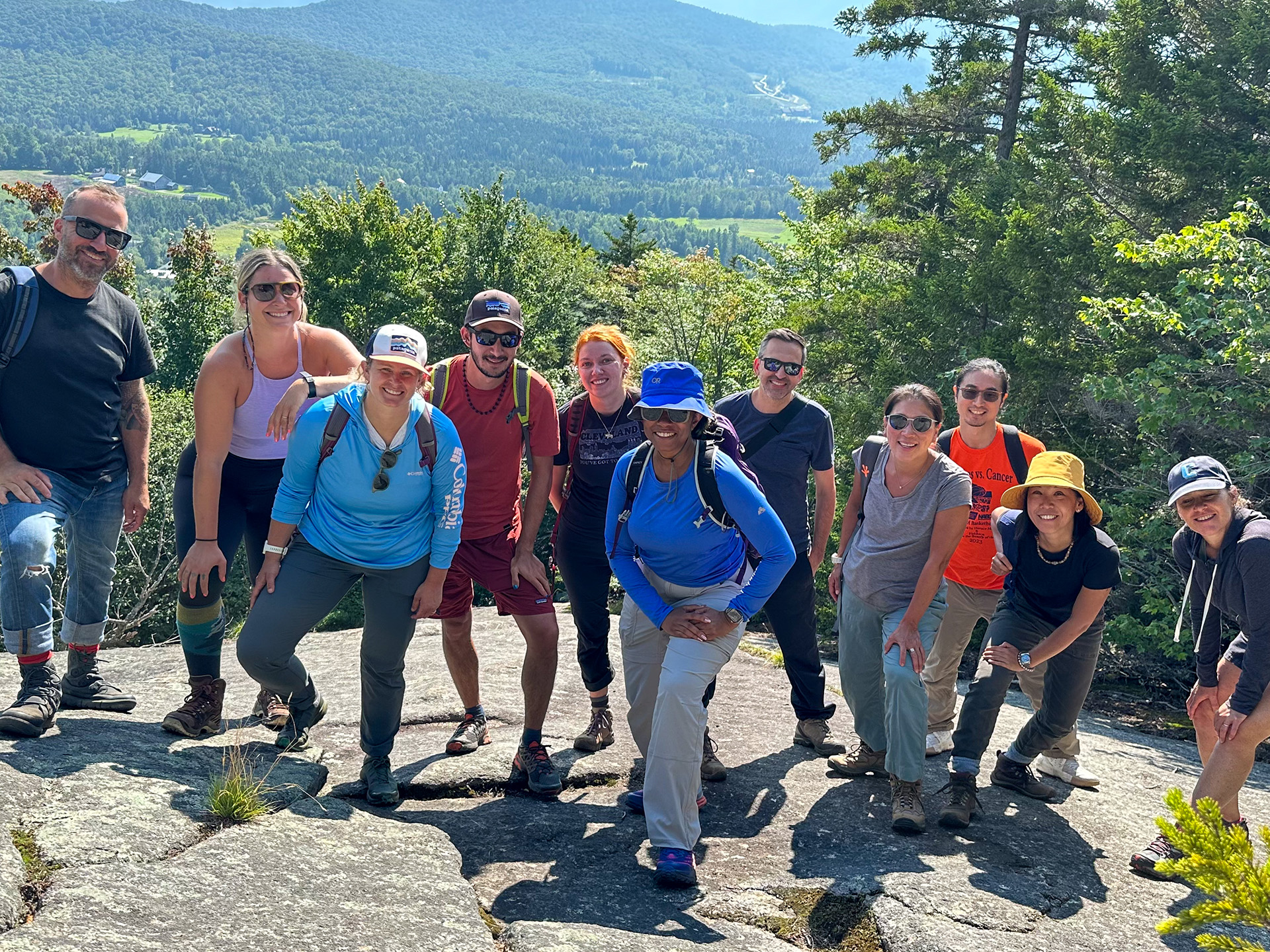
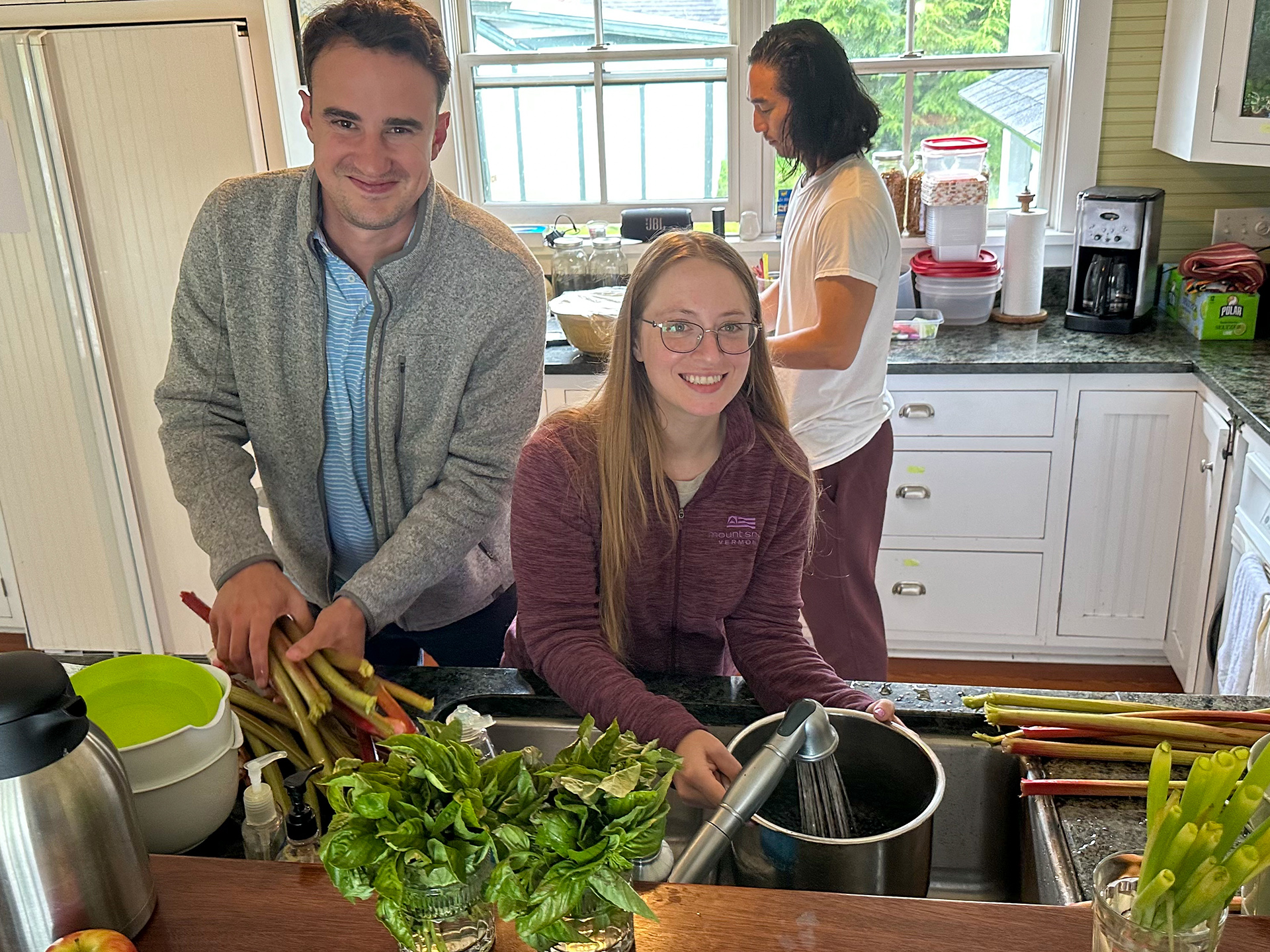
With Head of School Kari Ostrem’s vision for increased sustainability at Riverdale in mind, we were energized by the experiences on the farm, harvesting carrots in pouring rain, chopping rhubarb from the forest garden, shoveling kitchen scraps into the 20-foot cylindrical drum that turns at the push of a button in order to process compost. And now, back on campus, we are excited to bring what we learned to Riverdale, to share our discoveries and experiences so that our new understandings of the interdependent relationship between human and ecosystem can play a key role in how we teach, develop curriculum, and relate to the land beneath our feet.